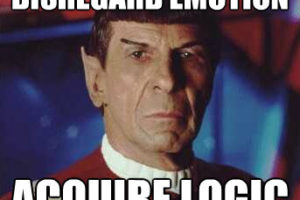Spelling Rules
- Posted by Brian Stocker
- Date June 28, 2021
- Comments 1 comment
Improving and learning spelling takes time, practice and learning the rules. Understanding the spelling rules and exceptions to the rules is the greatest strategy to help you know how to spell.
Understanding spelling rules is just one of the numerous strategies that can help you spell well.
So if you forget the spelling pattern, maybe you can remember the rules, and you hopefully understand why spelling is the way it is. Many spelling rules can assist you in improving your spelling. Let’s look at some of the spelling rules in a basic way:
Spelling Practice
I Before E, Except After C
There are various exceptions to this spelling rule, and it is better to think of it as a spelling guideline. It can be essential to words such as:
I before E
Example: Would you like to eat a piece of cake? Jamal will believe the story. They are planting new crops in the field.
Except before C
Example: Darnell received a trophy in the athletics competition. Nikita spotted a rat on the ceiling.
Unless the vowel sounds like A
Example: Our neighbours stay in a beige cottage. What is the height of the building?
Hint: It is a good idea to remember common exceptions to the spelling rule.
Adding Suffixes to Words Ending with Y
When you add a suffix that begins with E such as –ed, -est, or –er to any word ending with Y, the Y often changes to I. For example:
- Fry- Fried
- Dry- Dried-Drier
- Baby- babies
- Ugly – Ugliest
Add –ies if the word has a constant before Y after removing Y. For example:
Daddy- daddies
Difficulty – difficulties
Company – companies
Drop the Silent E
Usually, an E after a constant at the end of any word is considered silent; hence, it affects how you pronounce the vowel coming before the constant. The E enables the vowel sound of the word to be long rather than short. It is critical to understand the silent E correctly because the presence or absence of silent E can change a word’s meaning.
Example 1: The dog bit me. Keep your leg out of the cage. The dog’s bite
Adding the E at the end of the word bit changes the meaning of the word from past to present.
Example 2: Beware of the sharp knives; you can cut yourself. The man is very cute.
Adding the silent E in the sentence above creates a different word.
When you add a suffix such as -est, -ed, or -er, the silent E is often dropped from the main word’s end.
Example: The cat bared his teeth at the child for a long. The kitten’s eyes were bluest of all.
You can drop the silent E when you add a vowel suffix at the end of a word. For example:
Bite – biting
Joke – joking
Opposite + ion = Opposition
Sense + ible = Sensible.
Changing “-f” to “-s” or “-ves.”
Most words that end in “-fe” or “-f” often change their plurals to “-ves.” For example:
Wife – wives
Thief – thieves
Leaf – leaves
Knife – knives
Calf – calves
Some of the words end their plurals with “-s” or “-ves.” For example:
Handkerchief – handkerchieves or handkerchiefs
Dwarf – dwarves or dwarfs
You can add -s to words that end with -ff to make plural. For example:
Scuff – scuffs
Cliff – cliffs
Add -s to some words that end in -f. Nouns ending in two vowels plus “-f” often form plurals in the usual manner with an “-s” at the end. For example:
Spoof – spoofs
Chief – chiefs
Oaf – oafs.
Plural Suffixes
You can add -es when the word ends with -sh, -z, -x, -s, or -ch. For example:
I took one bus to town; you took two buses.
I only made one wish to the pastor; you made two wishes.
I am unloading one box of books; you are unloading the remaining five boxes.
Add –s for all other endings. For example:
I drank one cup of tea in the morning; you drank two cups.
I have one pair of a shoe; you bought three pairs of shoes.
- Double Consonants
Double consonants are regularly found in words with suffixes.
Example: I dropped the luggage in the car. Daniel called for you.
Some words can be pronounced either as one or two syllables, but their spelling remains the same in a sentence.
Example: Blessed are the humble, for they shall inherit heaven.
In the sentence above is a fixed expression, hence blessed is pronounced as two syllables:
Bless-ed.
Example: The Bishop blessed the couples after their wedding.
In the sentence above, the word blessed is pronounced as one syllable: blest.
Double consonants can change the meanings and pronunciation.
Example: Sisal is native to the desert. Would you like ice tea for dessert?
Most Common Mis-Spelled Words
- accommodate
- believe
- definitely
- embarrassed
- foreign
- government
- necessary
- privilege
- schedule
- separate
- until
- vacuum
English Practice Questions
Tests with Spelling Questions
Date Published: Monday, June 28th, 2021
Date Modified: Monday, May 29th, 2023
Got a Question? Email me anytime - Brian@test-preparation.ca
You may also like
Top Interview Questions
Top Interview Question – Tell me about yourself This is an opportunity to introduce yourself and give a quick summary of your background and qualifications. Highlight relevant experiences and skills that qualify you for the job. Example response My name …
Logic and Reasoning Practice and Tutorial
Logic tests are all about your ability to reason clearly, not about what you can memorize and recall. Some High School Exams, have logic problems which are a type of syllogism. Another type of logic related question is Arithmetic logic, which …


1 Comment
English is hard!!